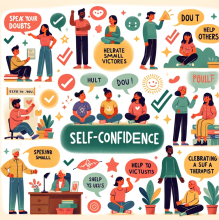Embracing Reality
To achieve better outcomes in life, the first step is to embrace reality as it is. Simply put, we need to have the most accurate view of the world around us. If our understanding is flawed, we might take actions that don’t work or even make things worse, leading to less-than-ideal results. To navigate life successfully, aligning ourselves with reality is essential. To "win" at life, we need to know the rules—or at least understand them well. This begins with accepting things as they are, not as we wish they were.










